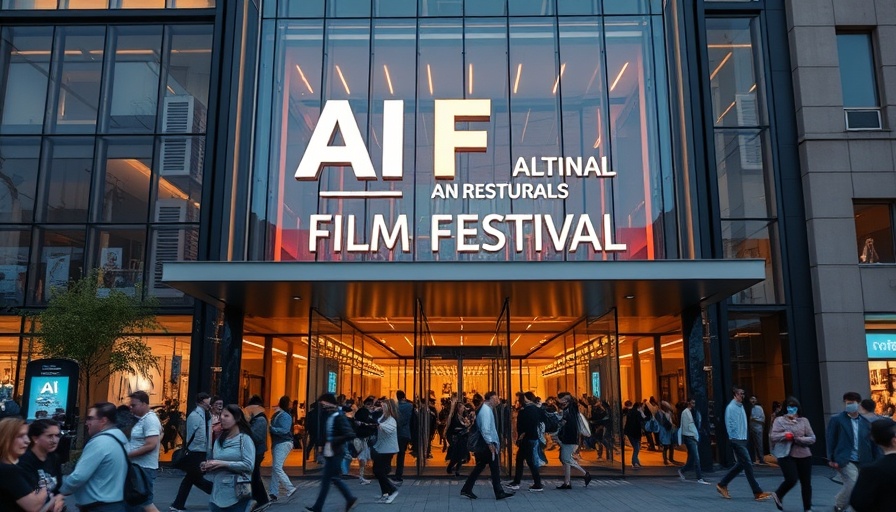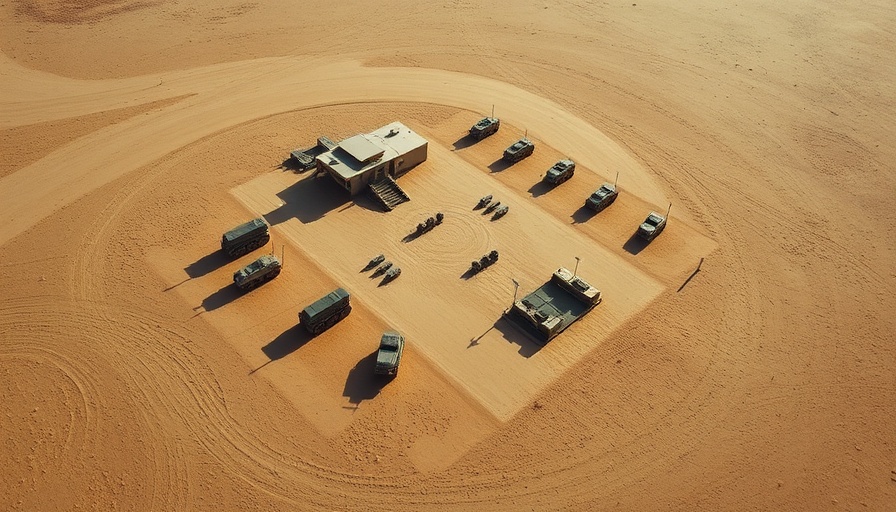
The Spotlight on AI in Cinema: A Revolutionary Shift
The recent third-annual AI Film Festival organized by Runway highlighted the explosive potential of artificial intelligence in filmmaking, showcasing ten groundbreaking short films at Lincoln Center's prestigious Alice Tully Hall. This year saw submissions skyrocket from about 300 in its inaugural year to a whopping 6,000 entries, demonstrating the surging interest in integrating AI with creative processes in cinema. Runway CEO Cristóbal Valenzuela emphasized the transformative journey the industry has undertaken, stating, "Today, millions of people are making billions of videos using tools we only dreamed of."
Celebrating Creative Diversity: The Films That Captivated
This year's festival program was rich with diverse storytelling, reflecting the broad capabilities of AI in cinema. Jacob Alder's striking short film, "Total Pixel Space," stood out as the top prizewinner. It explores philosophical questions about digital imagery while employing innovative math to depict the vast possibilities of visual representation. Similarly, Andrew Salter's "Jailbird" tells the oddly compelling tale of a chicken's perspective as it travels to a human prison for a rehabilitation program, delighting audiences with its unique angle. Finally, Ricardo Villavicencio and Edward Saatchi's "One" takes viewers on a futuristic journey of interplanetary travel, further indicating the boundless creative avenues AI can explore.
The Role of AI: Boundaries or Opportunities?
A defining feature of the festival is how it encourages artists to experiment with AI. While each film submitted must utilize AI-generated video, the criteria allow for a mixed media approach. Some filmmakers blend traditional filmmaking techniques with AI elements, thereby fostering dialogue about the potential of technology without constraining artistic expression. Judges evaluate the effectiveness of AI's implementation, pushing the boundaries of creativity rather than limiting them. As Valenzuela remarked, "We're trying to encourage people to explore and experiment with it."
The Future of AI in Filmmaking: Challenges & Innovations
Even as AI opens new doors for creativity, it does not come without challenges. Crafting a coherent narrative using generative AI requires considerable finesse and understanding of both technology and storytelling. AI may assist in visual creation, but the heart of a compelling story still hinges on human creativity. It raises the question many industry insiders are contemplating: Can a machine ever fully replace the emotional connection that human storytellers share with their audiences?
What Lies Ahead: A Collaborative Future?
With the successful reception of the AI Film Festival and the profound interest in AI's role in the creative process, it’s clear that artificial intelligence is here to stay in the world of cinema. As filmmakers and technologists collaborate, we may soon witness a new era in storytelling—one that harmonizes human creativity with artificial intelligence. This synergy might not only change the way films are made but also how stories are perceived and experienced by audiences worldwide.
For those intrigued by the intersection of technology and creativity, keep an eye on the developments from this festival. As AI continues to evolve, it stands to redefine not just filmmaking, but the very fabric of our cultural narratives.
 Add Row
Add Row  Add
Add 




Write A Comment